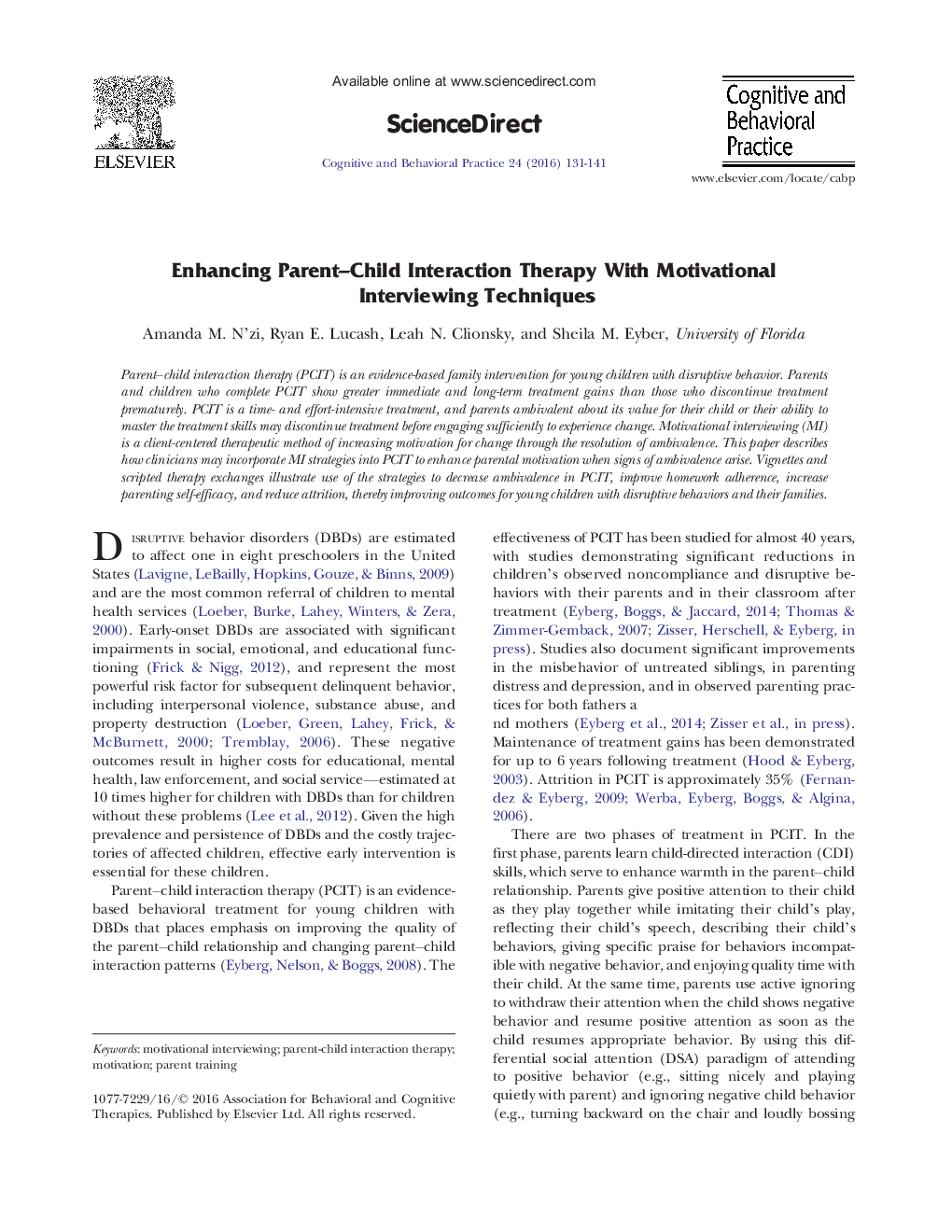| Article ID | Journal | Published Year | Pages | File Type |
|---|---|---|---|---|
| 5038594 | Cognitive and Behavioral Practice | 2017 | 11 Pages |
â¢Treatment adherence/retention critical in evidence-based behavioral treatments for children.â¢Motivational interviewing enhances engagement throughout parent-child interaction therapy.â¢Clinicians need strong working knowledge of the theories that underlie treatment approaches.â¢Therapists require extensive training and consultation from experts to implement new treatments.
Parent-child interaction therapy (PCIT) is an evidence-based family intervention for young children with disruptive behavior. Parents and children who complete PCIT show greater immediate and long-term treatment gains than those who discontinue treatment prematurely. PCIT is a time- and effort-intensive treatment, and parents ambivalent about its value for their child or their ability to master the treatment skills may discontinue treatment before engaging sufficiently to experience change. Motivational interviewing (MI) is a client-centered therapeutic method of increasing motivation for change through the resolution of ambivalence. This paper describes how clinicians may incorporate MI strategies into PCIT to enhance parental motivation when signs of ambivalence arise. Vignettes and scripted therapy exchanges illustrate use of the strategies to decrease ambivalence in PCIT, improve homework adherence, increase parenting self-efficacy, and reduce attrition, thereby improving outcomes for young children with disruptive behaviors and their families.
